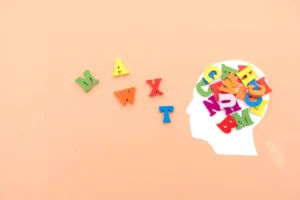What Really Happens Behind the Door of Couples Therapy?
This article has been researched and written by Moni El Ramlawy. AI has not been used in producing this article.
Couples don’t usually come to therapy because they stopped caring about each other – they come because they can ’t make sense of what keeps going wrong between them.
Most partners are trying hard, but the harder they try, the more stuck they feel.
Couples therapy gives us a chance to slow down and look closely at what’s actually happening in those moments of disconnect. It’s not about deciding who’s right or wrong; it’s about understanding the interaction that takes over and keeps both people from feeling connected.
One of the common things I hear in the first couples therapy session is “we are stuck”, “we fight about the same thing over and over again”, “ my partner doesn’t listen ”, or “ when we fight about something, my partner brings up all the things we fought about throughout the years of our relationship ”.
When I hear this, I feel the frustration, the helplessness, and the longing to hold on to a thread of hope.
In couples therapy, we don’t look for “the bad guy ”; we look for the pattern. Every couple has a pattern – pursue/withdraw, attack/defend, shut down/try harder. It’s not intentional. It’s a protective response.
So instead of focusing on who’s right and who’s wrong, we ask about what happens between you when you’re hurting. We slow things down so you can hear each other. Most couples aren’t fighting about the issue they come in with. They’re fighting because they feel alone, unseen, unimportant, or unsafe in the relationship.
When we understand the underlying hurt under the anger, the frustration, the withdrawal, and the defensiveness, we start hearing things like:
- “I walk away because I’m scared of losing you ”.
- “I push because I feel abandoned”.
- “I get angry because I feel unseen ”.
Once these truths enter the room, the relationship shifts.
The goal of couples therapy isn’t perfect communication, it’s emotional safety. When partners feel safe, communication naturally improves.
The outcome of couples therapy is not to stop fighting or to fight better, it’s to repair better. When partners begin to understand the emotional logic behind each other’s reactions, everything shifts. Arguments become moments of clarity instead of rupture, and distance becomes an invitation to reach rather than retreat. If you understood what you were both really protecting in those moments, how different would your conversations look?
Couples therapy doesn’t promise a conflict-free relationship, it offers something far more meaningful: the ability to repair, reconnect, and return to each other with softness instead of fear. In the end, healing doesn’t come from eliminating the cycle, but from learning to face it as a team.
Anxiety Disorders Explained: Types, Symptoms & When to Seek Help
This article has been researched and written by Mariam. AI has not been used in producing this article. Worry is part of being human. But when anxiety stops being a passing feeling and starts shaping every decision you make – what you avoid, how you sleep, how you show up at work and in relationships…
ADHD in Adults: Complete Guide to Symptoms, Diagnosis & Treatment in Dubai
This article has been researched and written by Mariam. AI has not been used in producing this article. For many adults living in Dubai, the struggle is familiar: missed deadlines, a desk that never stays organized, conversations you tuned out halfway through, and an inner voice that has spent decades whispering that you are simply…
Mental Health During Ramadan: 7 Tips for Emotional Wellbeing
This article has been researched and written by Mariam. AI has not been used in producing this article. Ramadan is a month of deep spiritual renewal, gratitude, and community. But for many Muslim residents and expats across Dubai and the UAE, it can also bring unexpected emotional challenges. Sleep disruption, fatigue, heightened anxiety during Ramadan,…
Famous People with Dyslexia
Representation matters especially when there is a stigma around dyslexia and learning disabilities in general …
Third Culture Kids: Growing Strong Roots in a Mobile World
In a city like Dubai, it is not unusual to meet a child who has already lived in three countries, attended four different …
What Can I Do If Someone Is Bullying Me at School?
If someone keeps being mean to you, teasing you, hurting you, or leaving you out on purpose, this is called bullying…







